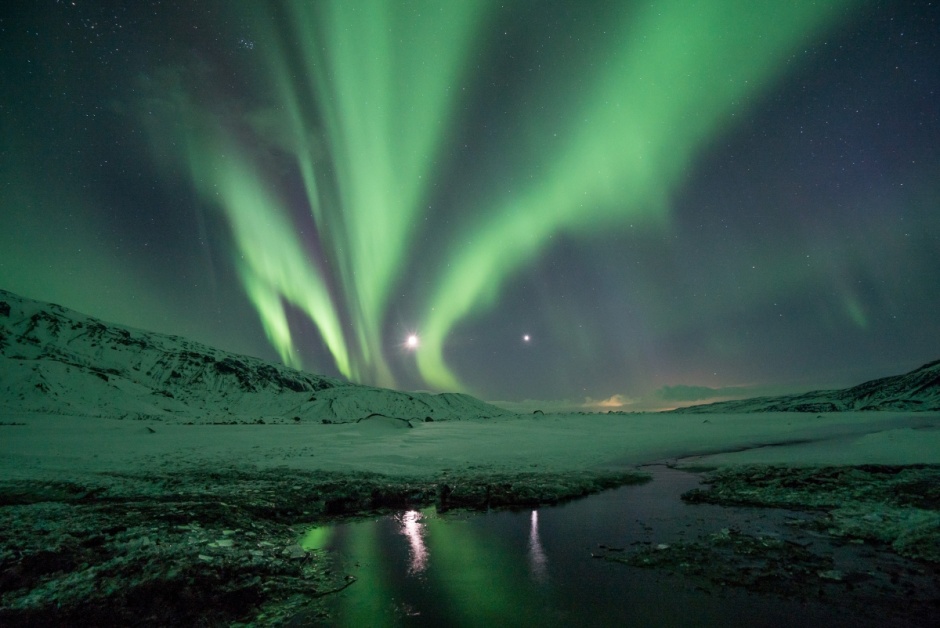The Best Time and Place to See Northern Lights in Iceland

Iceland is one of the world's most popular destinations for experiencing the Northern Lights because of its easy accessibility by air and highly developed tourist industry capitalizing on its unique nature.
Aurora Borealis in Iceland
Visit Iceland this winter to witness this breathtaking natural spectacle, which is also known scientifically as the Aurora Borealis.
The name comes from Aurora - the beautiful Roman goddess of dawn and Boreas, the Greek name for the north wind. Aurora Borealis is caused by the interaction of particles from the sun with the Earth's geomagnetic field causing the release of energy and peculiar luminous green arches across the skies. Since the geomagnetic field draws particles to the magnetic poles, Aurora activity is most common near the North and South Poles. The Northern Lights near the South Pole are called Aurora Australis.
Northern Lights as an additional bonus
Nobody can tell you the best time to see the Northern Lights, just like nobody can tell the best time to see a rainbow. However, there are a few things you can do to improve your experience.
Travel to Iceland from mid-September through mid-April if you want to see Aurora Borealis. Your chances to catch a glimpse greatly improve on a clear, crispy winter night.
Travel where the air is clear, like to rural areas that are outside populated cities and towns with pollution.
The ideal location for sightings may vary from day-to-day so "chasing the lights" with an experienced and knowledgeable local tour guide is strongly recommended.
The Icelandic Met service issues a daily Northern Lights forecast. Make sure you check it every morning during your stay in Iceland.
Ask people about Aurora Borealis
Talk to the local people. The Northern Lights are sometimes visible from the city of Reykjavik and local people would be the first to know about it and often get together to go out and enjoy nature's free performance.
You might end up staying in Iceland for a week and never catching a glimpse of Aurora Borealis because of poor weather conditions. Make sure you plan to do many things during the day and take in as much of the country as you can. Think of the Northern Lights as a nice bonus to your trip, not as the main focus, and you won't be disappointed!
No matter when and how you travel to Iceland you will be swept away by the beauty of this mysterious land and will return with an unforgettable experience of a lifetime.
Now that you are prepared to explore the Northern Lights in Iceland, consider our great selection of winter tours to Iceland
